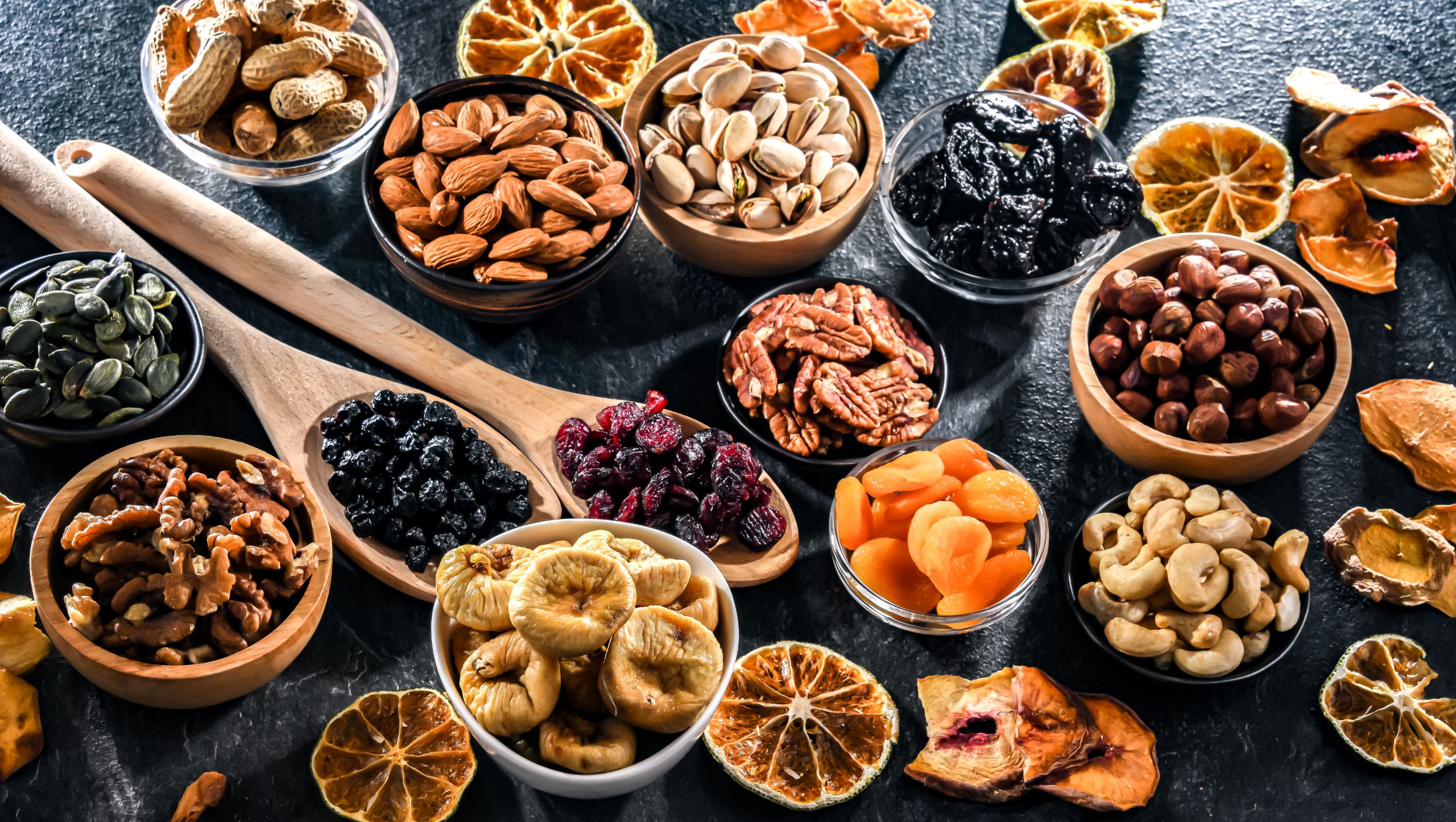
Dried fruit is not only a convenient and delicious snack but also a powerhouse of nutrients that can significantly benefit people over 50. Research indicates that dried fruit can protect bones, support heart health, and offer various other advantages beyond its well-known role in alleviating constipation. Here’s a comprehensive look at how dried fruit can contribute to overall well-being for older adults.
Bone Health
As we age, maintaining bone density and strength becomes crucial to prevent conditions such as osteoporosis. Dried fruits like prunes, figs, and apricots are rich in calcium, potassium, and magnesium, all essential minerals for bone health. Prunes, in particular, have been shown to help improve bone density and reduce the risk of fractures. The presence of vitamin K and boron in these fruits further enhances their bone-protective properties.
Heart Health
Heart disease risk increases with age, making cardiovascular health a priority for individuals over 50. Dried fruits such as raisins, apricots, and dates are high in dietary fiber, potassium, and antioxidants, which are beneficial for heart health. Fiber helps lower cholesterol levels, while potassium aids in regulating blood pressure. Antioxidants like polyphenols help reduce inflammation and prevent the oxidative damage that can lead to heart disease.
Digestive Health
While dried fruit is well-known for its role in relieving constipation due to its high fiber content, its benefits for digestive health extend beyond that. Regular consumption of fiber-rich dried fruits helps promote a healthy gut microbiome, reduces the risk of diverticulosis, and supports overall digestive function.
Antioxidant Properties
Dried fruits are packed with antioxidants, which help protect the body from oxidative stress and reduce the risk of chronic diseases. Antioxidants such as vitamin C, polyphenols, and flavonoids found in dried fruits like cranberries, blueberries, and raisins can help combat inflammation and support immune function.
Blood Sugar Control
Despite their natural sweetness, many dried fruits have a low to moderate glycemic index, meaning they do not cause rapid spikes in blood sugar levels. For people over 50, managing blood sugar is crucial to prevent or manage diabetes. Dried fruits like apricots, prunes, and apples can be a healthy addition to a diet aimed at blood sugar control, thanks to their fiber content and moderate sugar levels.
Cognitive Health
Nutrients found in dried fruits, such as antioxidants and vitamins, can support brain health and cognitive function. For example, raisins and dates are rich in polyphenols and other compounds that may help protect against neurodegenerative diseases and improve memory and cognitive performance.
Suggestions for Incorporating Dried Fruit into the Diet
- Snacks: Keep a variety of dried fruits on hand for a quick and healthy snack. Combine them with nuts for added protein and healthy fats.
- Breakfast Boost: Add dried fruits like raisins, apricots, or dates to your morning cereal, oatmeal, or yogurt for an extra dose of nutrients.
- Salads and Side Dishes: Toss dried fruits into salads for a sweet and nutritious twist. They also pair well with grains such as quinoa or couscous.
- Baking: Incorporate dried fruits into baked goods like muffins, bread, and cookies to enhance flavor and nutritional value.
- Trail Mix: Create a homemade trail mix with dried fruits, nuts, and seeds for a portable and satisfying snack.
- Hydration: Soak dried fruits in water or juice to rehydrate them for use in recipes or as a softer snack option.
Dried fruit offers a range of health benefits for individuals over 50, from supporting bone and heart health to providing essential nutrients and antioxidants. By incorporating dried fruits into your diet in various ways, you can enjoy these advantages while savoring their natural sweetness and convenience.
– Thanh Thuỷ –
